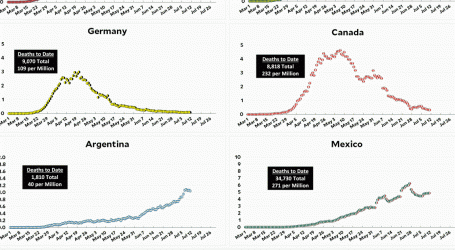‘Dredge-ready’ Savannah port tests Georgia’s clout in Trump era
Georgia politicians are preparing a new push for the infrastructure project that’s long been a top state priority, in hopes that President Donald Trump’s plan to inject $1 trillion into the country’s aging underbelly can add momentum to ongoing work to deepen Savannah’s port.
Trump called for a “new program of national rebuilding” Tuesday during his first Capitol Hill address, pledging to create millions of new jobs while shoring up the nation’s bridges, highways and rail lines.
And securing federal money for Georgia’s top goal — the $706 million dredging project — will be the sharpest test yet of the state’s clout in the Trump era. Already, leaders from both parties are lobbying Trump administration officials to sign off on the proposal.
“We are not only shovel-ready, we are already dredging,” Gov. Nathan Deal said of the port plan, adding: “We are looking forward to a huge infusion in the near future because we need this project.”
The dredging project, which would deepen Savannah’s harbor and waterway from 42 feet to 47 feet, has been in the works for more than a decade and united politicians from across the state and of all stripes.
“Even though it’s not technically in my district, my district benefits from stuff moving in and out of that port,” said GOP U.S. Rep. Austin Scott, whose 8th Congressional District hugs I-75 from Macon to Valdosta.
A pair of dredgers is already scooping up mud in the river — funded in part by $266 million in state dollars for the deepening — and Deal and other state officials have taken to playing off the “shovel-ready” phrase by calling the project “dredge-ready.”
‘Metro Atlanta’s port’
State leaders contend that deepening the waterway would allow bigger ships coming through the expanded Panama Canal to dock in Savannah and keep the port competitive with rivals up and down the coast.
The port and its cousin in Brunswick support 100,000 metro Atlanta jobs and, according to a University of Georgia study, amount to a $39 billion economic boost for the state. That’s one of the reasons Atlanta Mayor Kasim Reed said he’s become one of the project’s leading advocates.
“The port is Savannah’s port,” he said, “but it’s also metro Atlanta’s port.”
Describing the state’s bipartisan lobbying effort, Reed recalled that during the Obama administration, he showed up with Deal at Transportation Secretary Ray LaHood’s office to personally lobby for the deepening.
“And we’re sitting in the lobby,” Reed said, “and the poor scheduler thought she made a mistake.”
The strategy from there was simple, Deal said. The mayor focused on President Barack Obama’s West Wing, while the governor tried to corral the majority-GOP congressional delegation.
It worked, to a degree. Washington set aside about $45 million for the project in the 2016 budget year, though it fell short of the request from Georgia boosters who asked for roughly twice that much.
Port backers were even more optimistic about Congress’ initial plans for the 2017 budget year before election-year politics put all federal spending decisions on ice — they said the port was on track to receive their target amount of roughly $90 million for the year.
A ‘crumbling’ infrastructure
Shortly after Trump’s election, a trio of Republican lawmakers — U.S. Sens. Johnny Isakson and David Perdue and U.S. Rep. Buddy Carter — wrote the new president’s administration with a request to set aside roughly $100 million a year for the deepening. They say that level of funding for the next four years will keep the project on track.
“Should the federal share continue its pace of gross under-funding, the project could be delayed by more than five years with the federal government’s share increasing by hundreds of millions of dollars,” the letter stated. “In essence, the more the federal government holds back in providing their share of the funding, the more it will cost the federal government in the long run.”
Trump campaigned on a pledge to rebuild the nation’s infrastructure, and he said Tuesday that he’ll ask Congress to approve a $1 trillion plan “financed through both public and private capital” that will be guided by a buy-American-and-hire-American principle.
“America has spent approximately $6 trillion in the Middle East, all this while our infrastructure at home is crumbling,” he said. “With this $6 trillion we could have rebuilt our country — twice. And maybe even three times if we had people who had the ability to negotiate.”
The details remain murky, though the administration has already received a list of 50 high-priority projects costing more than $137 billion that includes the Savannah port deepening.
“We certainly were very encouraged by the last three years of the Obama administration. … We have no reason to believe that the Trump administration will be any less supportive,” Isakson said. “In fact, we think they may even be more supportive because they recognize the value of infrastructure investment bringing jobs.”



